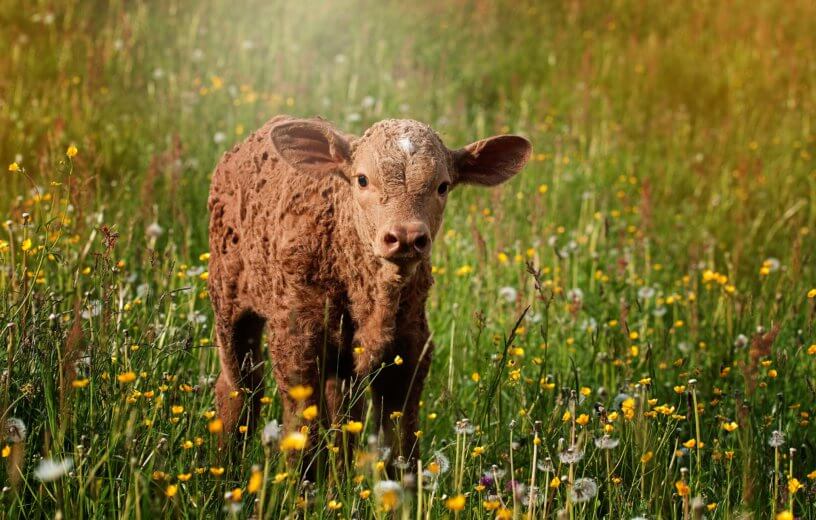LANCASTER, England — Animal activists often exhibit gruesome images of abuse and mistreatment that livestock face before heading to the slaughterhouse. But if they want more people to go vegan, they may be better off simply using a slideshow of adorable animals instead. That’s because a new study finds that people who view images of baby animals have a reduced appetite for meat afterwards.
Researchers from Lancaster University say that while both men and women were less likely to eat a burger after seeing the cute photos, the effect was far more profound for women.
Of course, animal rights activist groups, who have been trying to put people off meat-eating for decades, have been using these images in their advertising and awareness campaigns in addition to the more frightening ones, but their effectiveness hasn’t been measured.
For the study, the authors showed images of calves, joeys, piglets, and lambs to a cohort of men and women. They were also presented with images of cooked meals that came from the meat of the animals being shown. The authors then measured the participants’ willingness to eat meat immediately after.
“We found that both men and women find baby farmed animals to be cute and vulnerable, and experience feelings of tenderness and warmth towards them,” the researchers wrote. “Feeling tenderness towards a baby animal appears to be an oppositional force on appetite for meat for many people, especially women.”
Dr. Jared Piazza, one of the study’s co-authors and a psychologist at Lancaster theorized that the images of baby animals had a greater effect on women because of their maternal instincts.
“Our findings may reflect women’s greater emotional attunement towards babies and, by extension, their tendency to empathize more with baby animals,” he explains. “Also, meat is associated with masculinity and images of tough men who consume meat for muscle building protein, along with prehistoric ideas of the male as hunter. Women have a much more ambivalent attitude towards meat and their identity is not bound up with it in the same way.”
Participants were also shown images of the cooked dishes along with an image of a calf, cow, or no animal at all. Even in this experiment, the meat dish was least appetizing for participants — particularly women, again — after the calf was shown. The stomach-turning effect didn’t happen, however, when the cow or control image was shown.
“Our results highlight a tension within some omnivores between caring for baby animals and appetite for meat,” the authors concluded.
The full study was published May 3, 2018 in the journal Anthrozoös.
